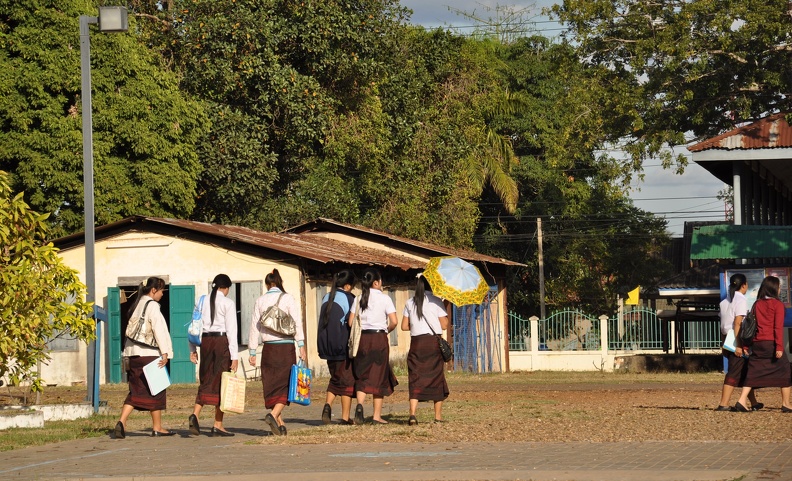Development Days 2019: Repositioning global development: changing actors, geographies and ontologies
27.2-1.3.2019, House of Science and Letters (Tieteidentalo), Helsinki, Finland Organizer: Finnish Society for Development Research
Among some of the most pressing global problems today are: i) the widening social inequalities within and between countries; ii) environmental pollution, ecological crises and conflicts over land and other resources; iii) migration, and the rise of extremism and populism; and iv) technological change contributing to increased risks to personal security and safety. While these issues are of complex origins, they are linked to globalization and the dominant global development model, in which corporate and individualistic interests stand above social and environmental ones, and logics, values and interests of Western countries stand above those of other countries. The magnitude of the crises linked to these global problems have led some academics, and some politicians to rethink their political and economic strategies and agendas. At the same time, recent years have witnessed simultaneous trends of weakening of established global economic and political leadership on the one hand, and the emergence of new economic powers on the other. This has led to the ascent of new actors in the global development arena, most notably China, India and Brazil. They and many others are rapidly emerging from what the conventional economic model had labelled as ‘disadvantaged’ parts of the world, and are increasingly playing a key role in development processes worldwide.
The crossroads at which humanity stands today requires a shift in development logics and
paradigm. In this conference, we will discuss alternative development strategies and the role of emerging actors in development across multiple scales. Contributions from various
disciplines, including human geography, environmental politics, development studies,
sociology and institutional economics are called upon to discuss themes and questions, such as: 1. To what extent do global power shifts entail possibilities for more democratic—or conversely, more authoritarian—global governance? 2. What are the potentials of development and cooperation programmes in which problems and solutions emerge from geographical, societal, and gender-based margins? 3. Can we expect more socially and environmentally just, equality-laden and economically viable futures in the context of shifting geographies of Development?
The conference will serve as a platform to share research findings and experiences, as well as to develop new ideas and strategies for shifting development narratives and agendas, for re-connecting actors from different scales, and critically examining and redefining the meanings and logics of development. We welcome development scholars from a plurality of disciplines and critical theories, as well as practitioners from a broad range of professional backgrounds to explore ways to engage in progressive debates of building bridges between actors, scales, movements and societies at multiple levels and beyond global-local binaries.
Call for abstracts for Development Days 2019 Conference is now open!
We invite you to join us in Helsinki, for Development Days 2019 Conference Repositioning global development: changing actors, geographies and ontologies, to take place on 27.2-1.3.2019. Join and contribute to a critical academic and practitioner exchange on new trends, promises, pitfalls and alternatives in development-related research.
You can submit your abstracts directly to one of the proposed working groups, by contacting their chairs. The abstracts of 300-350 words should be submitted by 31 December 2018, directly to chairs of the working group/s of your choice. In case of doubts concerning the selection of working group/s, please submit your abstract to the chair of the organising committee, Sabaheta Ramcilovik-Suominen (sabaheta.ramcilovik- suominen(at)uef.fi) and she will try to assign it to the fitting working group or event.
The working groups address a range of themes including decoloniality, transformations in social movements, social organisations, research and education, to name a few. In addition to working groups, the conference includes Master and Doctoral workshops, as well as a civil society event; offering a variety of opportunities for you to engage and present your research, to learn about other research in the field, and to strengthen your network.
KEYNOTE SPEAKERS
We are very pleased to announce our keynote speakers for the Development Days 2019 conference: Giles Mohan, Ashish Kothari and Rosalba Icaza Garza.
Conference Schedule:
- 31.10. 2018: Deadline for session proposals
- 15.11. 2018: Call for paper/presentation abstracts
- 31.12.2018: Deadline for paper/presentation abstract submissions
- 15.01.2019. Notifications of accepted papers /presentation abstracts (by WG Chairs)
- 1.1.-20.2.2019: Registration for the conference open
- 27.2. 2019: Pre-Conference Workshops for Master’s and PhD students
- 28.2-1.3.2019. Development Days Conference.
